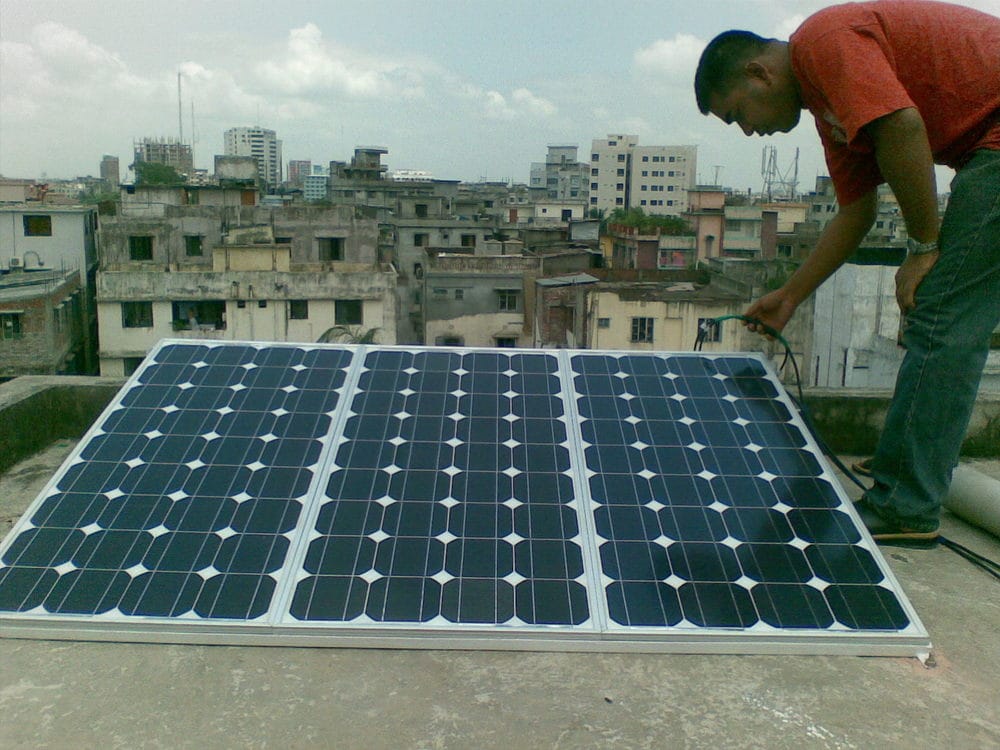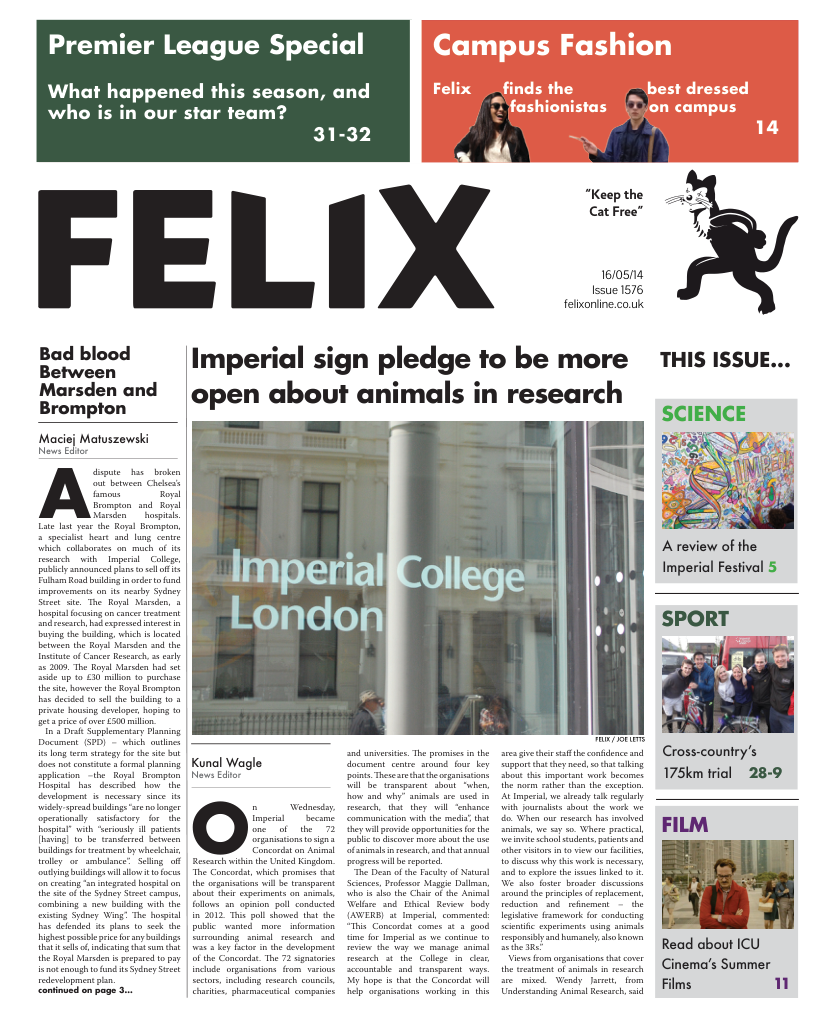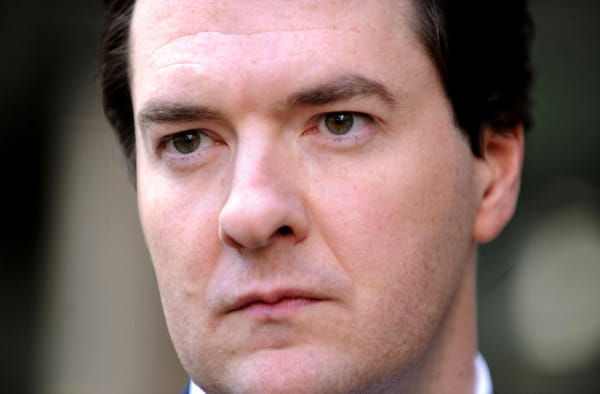4 Steps to Easy Climate Action
Emily White explains how we can easily make a change with four simple actions

With the recent release of the 5th assessment report from the Intergovernmental Panel on Climate Change (IPCC), which gives us more evidence than ever before that we need to start taking serious action to reduce our impact on the environment, it is easy to feel evermore helpless. This is such a huge issue and how can ordinary people actually make a difference? Of course I could sit here and tell you about all the usual ways we are encouraged to become more sustainable like recycling that yoghurt pot that you always throw in the bin or turning off the light that you always leave on when you’re finished in the bathroom but we know all of this already. You might be interested to hear though that there ARE other, bigger things we can do that can really get this ball rolling (but don’t stop recycling that yoghurt pot!).
In a recent blog post from the Huffington Post, Mary Ellen Harte talks about some of the major things we can do in our lives to kick start change. It’s pretty simple, there are 4 components: Divest, Invest, Vote and Talk. Her blog was written with the majority of the population in mind (meaning adults with an income!) but I want to just talk about some of these things from a student’s perspective.
DIVEST
So the first point: Divest. This point is about money. And specifically moving money away from where it is potentially causing damage. When you opened your bank account (or when your parents opened it for you when you were a child) did you think about what the bank was actually going to do with your money? I’m guessing not, although some of you hopefully have! As students the amount of money we have in savings accounts is probably not that large but if we start questioning the way large banks make their money and moving our money accordingly they will eventually have to sit up and take notice. I personally do not want any money I have in a bank account to be invested in large carbon intensive industries, I would much prefer however to put my money in places where it has the potential to do some good. This has recently prompted me to seriously think about this, guided by a fantastic website that rates banks on things like ethics, honesty and culture (www.moveyourmoney.org.uk). I am in the process of transferring my current account to Nationwide (a building society so therefore has the interests of its members at heart) and, sacrificing 0.3% interest (i.e. not a lot!), my savings account to Triodos bank, which prides itself on ethical investments. It has been really easy to make these changes, I could do it all online and used the Current Account 7 day Switch service so there is really no reason to think it is a massive faff to move your money.
On a larger scale, there is currently a petition for Imperial College to become more sustainable, set up by the Environment Coordinator for Imperial Hub, Michael Chung, which includes a statement about divesting from fossil fuels (bit.ly/ICGreenWeekPetition). Just recently, Stanford University has divested $18.7 billion from the coal industry and I suggest you sign this petition if you want to see Imperial College, supposedly a forward thinking college of technology, do the same and start spear heading the climate revolution. We are already way behind compared to the progress other UK universities have made and I really don’t see that this is acceptable.
INVEST
The second point ‘Invest’ could sort of be thought of as the inverse of the first from a student point of view, as it is unlikely we are able to make any solid investments in anything (except the pretty solid one we’ve made in our education!). However transferring money to banks that make more ethical commitments is a good start.
VOTE
VOTE! This is a particularly topical one as the local and EU elections are coming up on the 22nd May. People often feel that they don’t have much power when voting but this is not the case. Only 41% of young people are expected to turn out to vote but it is extremely important that the young generations are well represented as we are going to be the ones dealing with the changes made by politicians. So on the 22nd May think about which party is going to bring about the changes you want to see.
I admit I don’t know a whole lot about politics but an article from www.opendemocracy.net titled ‘Voting for climate’ sums up the players in the European election pretty well. Voting for the Conservative party means voting for the European Conservatives and Reformists Group who want to prioritise competitiveness and think that climate action is jeopardising this. Voting for UKIP is a vote for the Europe of Freedom and Democracy group, which is broadly speaking a group of people who are not worried about the current climate situation. A vote for the Green Party, part of the European Greens, is supportive of renewable energy and the many jobs that can be created in this sector whilst it is against energy production by means of coal, fracking and nuclear. A vote for Labour who are in the Socialists and Democrats Group is in between these two extremes but also active in regards to climate change. Finally the Liberal Democrats, in the Liberal and Democratic Group, have a high climate protection profile and support a EU-wide carbon tax. There is one further group that we are not able to vote for, as it has no UK members: The European Peoples Party (which includes Angela Merkel, Chancellor of Germany). It commits itself to sustainable development and considers nuclear in the energy mix. So as expected there is a whole range of options, but make sure you think about your vote carefully!
TALK
And finally Talk. This is probably the most powerful point out of the 4. Talking about climate change and bringing it into the everyday conversation is the only way that everyone will understand the urgency of the situation. It will also make daily actions of sustainable behaviour become the norm as people will constantly be reminded of their importance. And conversations about climate do not have to be depressing! Far from it, there are so many examples right now of amazing progress made by countries all over the world; like the fact that the smallest Canary Island is the first island to be 100% powered by wind and solar energy, like the fact that last year 1 million jobs were created in the global renewables sector which in total makes up 6.5 million jobs, and like the fact that Bangladesh is installing 1,000 solar power systems everyday.
By starting with some of these steps we can have a voice that is louder and more demanding of ambitious climate action.
Climate change is THE issue of our generation and it is up to us to get engaged with the solutions to the problem, after all, we are the ones who need to fix it.





